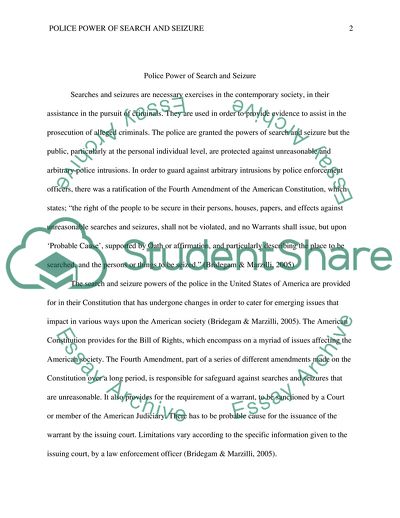Cite this document
(Police Power of Search and Seizure Term Paper Example | Topics and Well Written Essays - 1500 words, n.d.)
Police Power of Search and Seizure Term Paper Example | Topics and Well Written Essays - 1500 words. https://studentshare.org/law/1762493-police-power-of-search-and-seizure
Police Power of Search and Seizure Term Paper Example | Topics and Well Written Essays - 1500 words. https://studentshare.org/law/1762493-police-power-of-search-and-seizure
(Police Power of Search and Seizure Term Paper Example | Topics and Well Written Essays - 1500 Words)
Police Power of Search and Seizure Term Paper Example | Topics and Well Written Essays - 1500 Words. https://studentshare.org/law/1762493-police-power-of-search-and-seizure.
Police Power of Search and Seizure Term Paper Example | Topics and Well Written Essays - 1500 Words. https://studentshare.org/law/1762493-police-power-of-search-and-seizure.
“Police Power of Search and Seizure Term Paper Example | Topics and Well Written Essays - 1500 Words”. https://studentshare.org/law/1762493-police-power-of-search-and-seizure.


